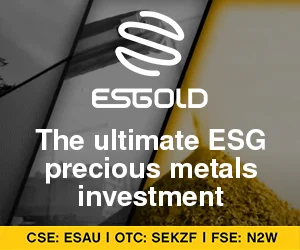Introduction
In the ever-evolving landscape of the mining industry, companies are increasingly recognizing the importance of downstream beneficiation as a means to enhance profitability and sustainability. Tharisa, a prominent player in the chrome and platinum group metals (PGM) sector, is at the forefront of this shift. CEO Phoevos Pouroulis recently highlighted the company’s progress in diversifying its product mix and investing in innovative technologies that promise to reshape its operational framework.
Commercial Success in Chrome Alloy Production
Tharisa’s recent achievement of selling its first commercial chrome alloy to an industrial user in South Africa marks a significant milestone in its journey towards diversification. Pouroulis emphasized that this sale is just the beginning of a broader strategy aimed at beneficiating products in a proprietary manner. This approach not only opens new markets for Tharisa’s chrome business but also positions the company to capitalize on the growing demand for high-quality chrome alloys.
Innovative Energy Solutions: The Redox Flow Battery System
In addition to its advancements in chrome production, Tharisa is making strides in energy innovation. The company has successfully upscaled and tested its Redox flow battery system, a proprietary technology derived from the chrome concentrate produced at its site. This long-duration, efficient energy storage solution addresses a critical need in the energy sector, particularly as the world shifts towards renewable energy sources. By leveraging its own resources, Tharisa is not only enhancing its operational efficiency but also contributing to a more sustainable energy future.
Resilience Amid Commodity Volatility
Tharisa’s business model, which emphasizes co-production, has proven resilient in the face of commodity cyclicality and volatility. Pouroulis noted that the company experienced a strong operational cash flow year, underscoring the effectiveness of its diversified approach. While the PGM market may currently lack conviction, Tharisa remains steadfast in its commitment to invest through the commodity cycle, ensuring that it is well-positioned for future growth.
Commitment to Sustainability: Reducing Carbon Footprint
On the environmental front, Tharisa is taking significant steps to reduce its carbon footprint by 30% by 2030. The company has signed a 15-year, 40 MW renewable energy wheeling agreement with Etana, which will supply approximately 40% of its energy requirements. This initiative complements Tharisa’s ongoing solar project, which aims to provide an additional 30 MW of green power on-site. These efforts reflect Tharisa’s commitment to sustainability and responsible mining practices.
Navigating the PGM Market Landscape
Tharisa’s COO, Michelle Taylor, provided insights into the PGM market, noting a year-on-year decline in the PGM basket price, which dropped by 28% to $1,362/oz. Despite this downturn, the company remains optimistic about future price increases, driven by expected reductions in primary supply, particularly from South Africa. Taylor highlighted the normalization of buying patterns among automakers, with a growing share of sales attributed to plug-in hybrids and hybrids, indicating a shift in demand dynamics.
Production Achievements and Financial Performance
The financial year ending September 30 saw Tharisa achieve notable production improvements. The company produced 145,100 oz of PGMs, a slight increase from the previous year’s output of 144,700 oz. Chrome concentrate production also rose to 1.7 million tonnes, marking the highest output in the company’s history. This increase in production contributed to a 26.3% year-on-year rise in operating profit, reaching $119 million compared to $94.7 million in the prior year.
Future Prospects: The Karo Platinum Project
Tharisa’s flagship asset, the Tharisa mine located in South Africa’s Bushveld Complex, continues to be a cornerstone of its operations. Additionally, the company is developing the Karo platinum project in Zimbabwe, where it holds a 76% shareholding in Karo Mining. Once capital commitments are fulfilled, Tharisa will effectively hold a 68% interest in the project, further expanding its footprint in the PGM sector.
Conclusion
Tharisa’s strategic focus on downstream beneficiation, innovative energy solutions, and sustainability positions the company as a leader in the mining industry. With a commitment to diversifying its product mix and investing in new technologies, Tharisa is not only enhancing its operational resilience but also contributing to a more sustainable future. As the company navigates the complexities of the PGM market and continues to achieve production milestones, it remains poised for growth and success in the years to come.




